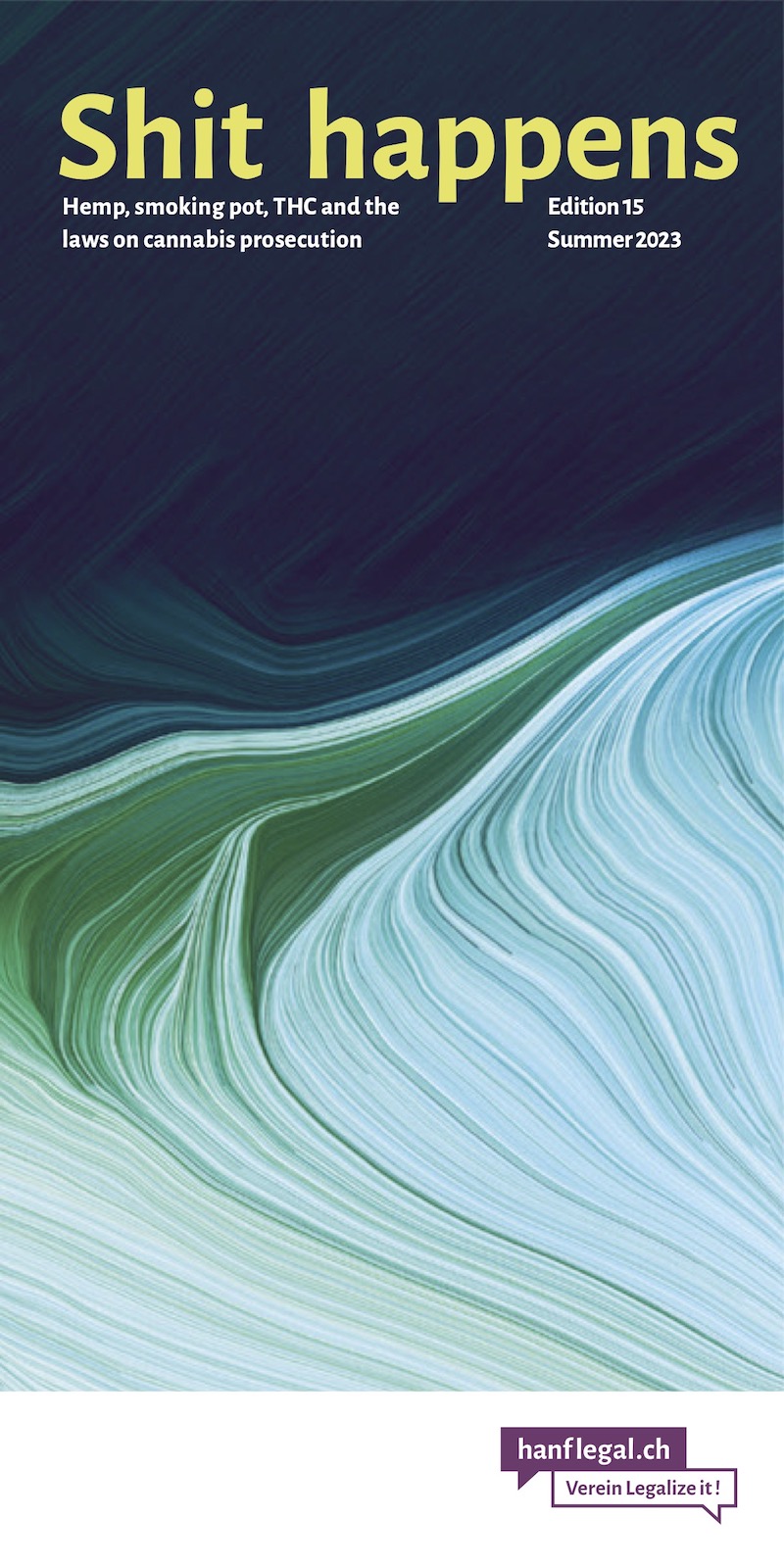- THC & Law:
Table of Contents
Policy overview: What happened?
The referendum deadline is the last hurdle for medical hemp. From the parliament comes an initiative that demands a comprehensive new regulation of cannabis - the first consultation has taken place. The ordinance on pilot projects has arrived: applications can now be submitted.
Easements passed for cannabis medicines
After the National Council had approved this bill at the end of 2020, the Council of States followed suit on March 8, 2021. In the final vote on March 19, the facilitations for medical hemp passed without any problems: In the National Council it was 136 to 52 votes with 7 abstentions, in the Council of States there was even unanimity (44 to 0).
The referendum period runs until July 8 (although it is unlikely that anyone will take the referendum). By the end of 2021, it should be clear when this amendment and the necessary ordinances will be put into force.
This will be followed by the most important phase, when the new possibilities will be explored and it will become clear how the new regime will work. Remuneration via health insurance is still being clarified. Two of our board members are taking part in further training for the new handling of cannabis medicines.
First consultation on the parliamentary initiative
In 2020, National Councilor Heinz Siegenthaler (Die Mitte) had launched a parliamentary initiative to regulate hemp in a new way. The basic idea: Cultivation, production, trade and consumption of THC-containing cannabis should be newly regulated by law according to the recommendations of the Federal Commission on Narcotic Drugs. The idea is a rather restrictive decriminalization, with many controls. But still: The plan is to create legal access and lift the total ban.
The Commission for Social Security and Health of the National Council debated this proposal on April 28, 2021, and narrowly approved it by 13 votes to 11 (with 1 abstention). Now the sister commission of the Council of States must discuss it.
Initial findings on the pilot projects
Now it is legal to sell cannabis in pilot projects. Ten years this exception is valid in NarcA. A cannabis social club in a pilot project is something many would like to see, but politics and regulations do not make it easy. As of May 15, 2021, the new exemption provisions in NarcA, which allow for ten years to sell and consume THC-rich hemp without being prosecuted, are in effect. Of course, this is only possible if one complies with these regulations and has received a permit from the Federal Office of Public Health (FOPH) for the pilot project.
Get an overview
At the end of 2020, the ideas became more concrete to clarify whether we as an association could move in the direction of the Cannabis Social Club as part of the planned pilot projects (see Legalize it! 89, pages 4 - 5). Although the feedback from our members was sparse, we were able to find a pot to pursue this matter thanks to a larger donation.
So we started to get an overview in order to ask the right questions. The FOPH was able to provide us with some initial concrete answers. It then became really interesting in particular in the exchange with the city of Zurich, which had also already signaled in the media that it would actively accompany pilot projects.
No solo run
In order to scientifically accompany a pilot project, researchers must be found who are willing to take it on. The municipality(ies), the ethics committee and the FOPH have to approve everything - there are some paper tigers to be tamed. Everything must be meticulously recorded. Cannabis has to be grown or organized. And the ongoing operation requires paid labor.
It quickly became clear that we would not be able to handle such a project on our own - and so we depended on help, for example, on the cooperation of a municipality's project. The city of Zurich is interested in companies and associations that want to set up a pilot project. The research, for example, would be taken over and the initiators could focus on their core business. In the course of the summer, corresponding tenders will take place, in which we as an association Legalize it! will also participate if necessary.
But many questions are still open
Earlier than expected, the Ordinance on Pilot Trials under the Narcotics Act was published. As a result, the amendment to the law came into force in mid-May 2021. The ordinance regulates the requirements for conducting the pilot trials as well as the details of the application procedure.
Much seems possible, but important points remain unresolved. To name just a few questions: What portion of the margin from cannabis sales will be available to the project or must be passed on? What products will be available to us and are they attractive enough to replace the current illegal sources?
FOPH restrictions and problematic views
Anyone who reads the explanatory report on the ordinance more closely often wonders what all this is about.
For example, only those who have already consumed drugs are allowed to take part, which must be proven by a urine or hair sample. It will be exciting to see how many will endure this step.
⇒ No relaxation awaits participants in the area of road traffic law. The current view of forensic medicine is clear: regular consumption is not compatible with driving. Thus, those who are dependent on a vehicle cannot afford to participate.
⇒ Further, the FOPH writes in the explanatory report that persons with problematic cannabis use “would be referred to treatment.” We find this formulation too aggressive. In any case, however, operators of a cannabis social club have to deal with how to deal with people for whom consumption is obviously not good.
We stay tuned!
It is clear that under the given circumstances it is hardly possible to plan a cannabis social club based on the Catalan model. But we can gradually work towards it.
Our approach is to start minimally and to expand our project as far as possible, for example with our own premises, more offers, etc.
Support our work with a donation:
Bank transfer
Account number (IBAN):
CH02 0900 0000 8709 1354 3
Full account details
Or scan this QR code with your eBanking App (ZKB, Revolut, Postfinance, …):

Or open/share the QR code as PDF file with your eBanking App.
Credit card
Donate via credit card
Verein Legalize it!
Quellenstrasse 25
8005 Zürich
Threema ID 7NH65RBY
Don’t miss anything! Follow us on social media:
